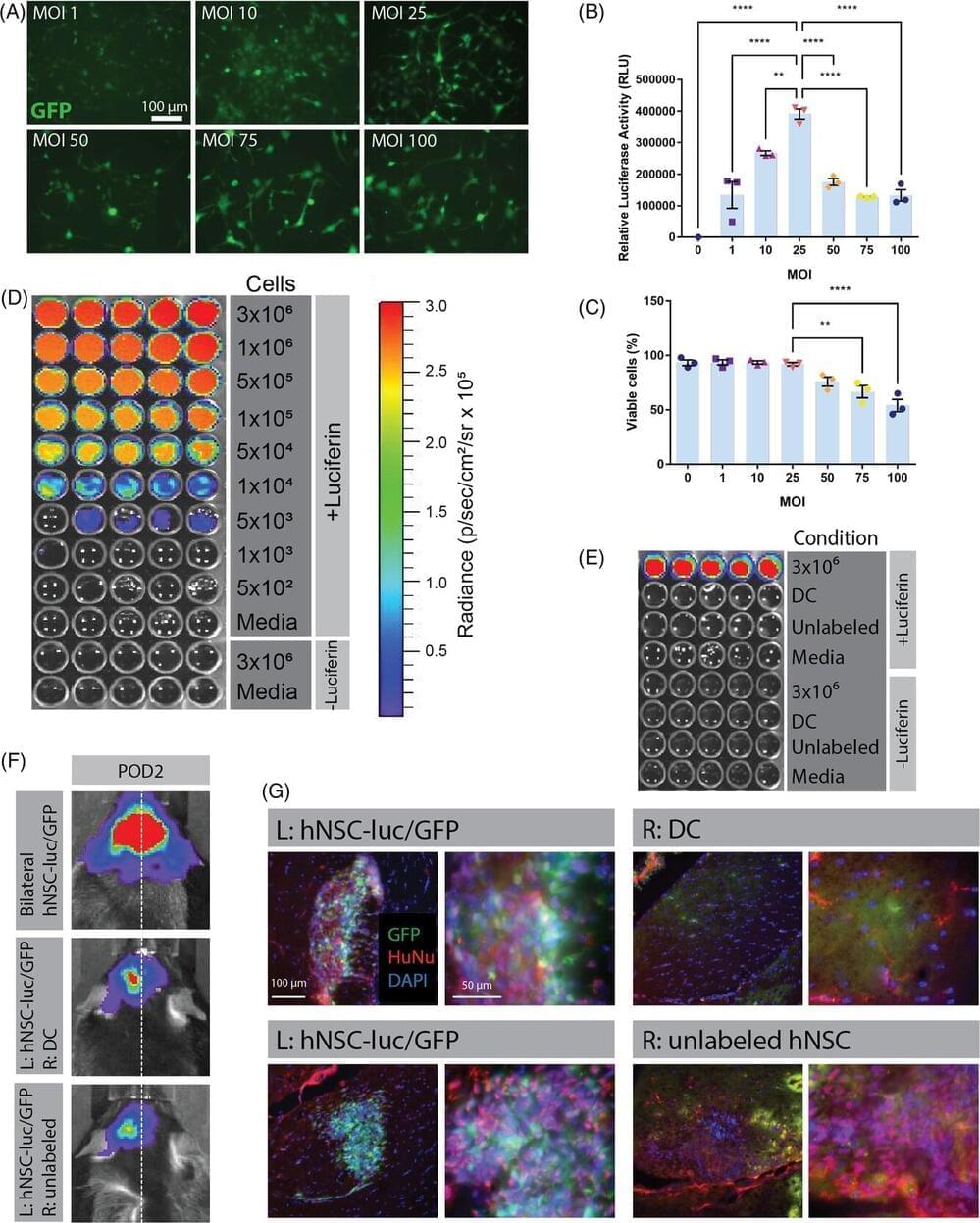A new approach to stem cell therapy that uses antibodies instead of traditional immunosuppressant drugs robustly preserves cells in mouse brains and has potential to fast-track trials in humans, a Michigan Medicine study suggests.
For this study, researchers used monoclonal antibodies to suppress the immune system in mice and compared the results to traditional immunosuppression with the medications tacrolimus and mycophenolate mofetil. They tracked implanted human neural stem cell survival using luciferase, the protein that makes fireflies glow.
Results published in Clinical and Translational Medicine reveal that suppression with monoclonal antibodies enabled long-term survival of human stem cell transplants in mouse brains for at least six to eight months, while the cell grafts did not survive more than two weeks in most animals when using standard immunosuppressant drugs.
